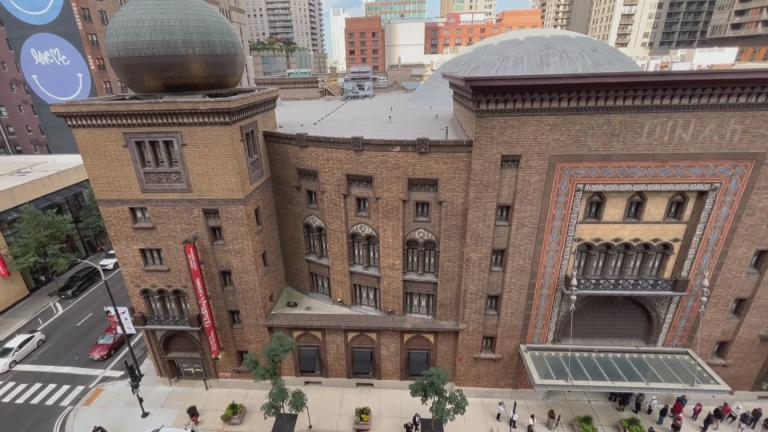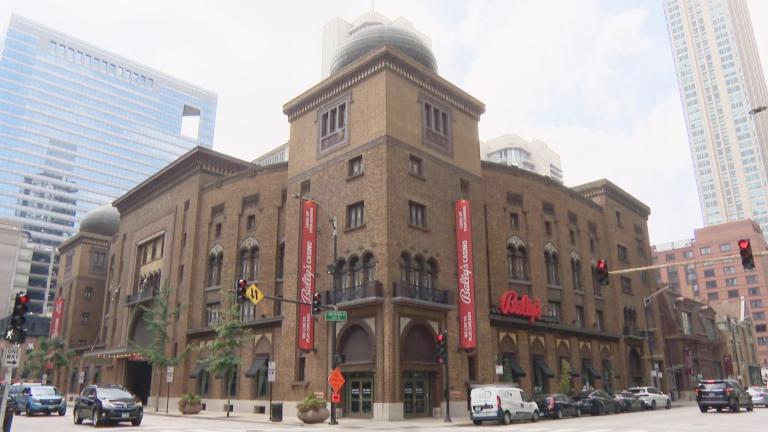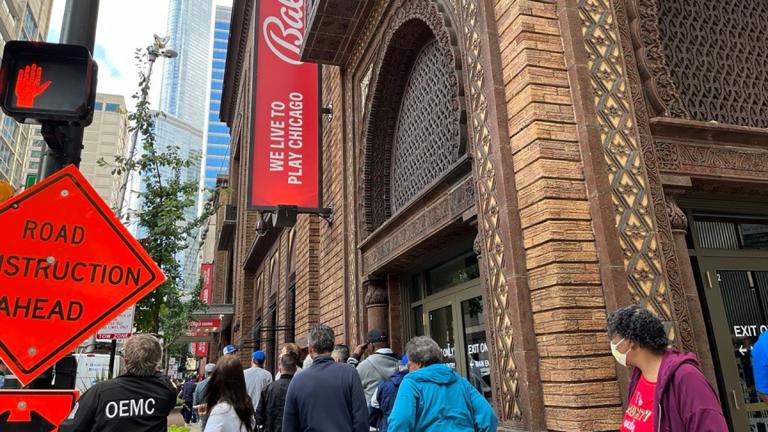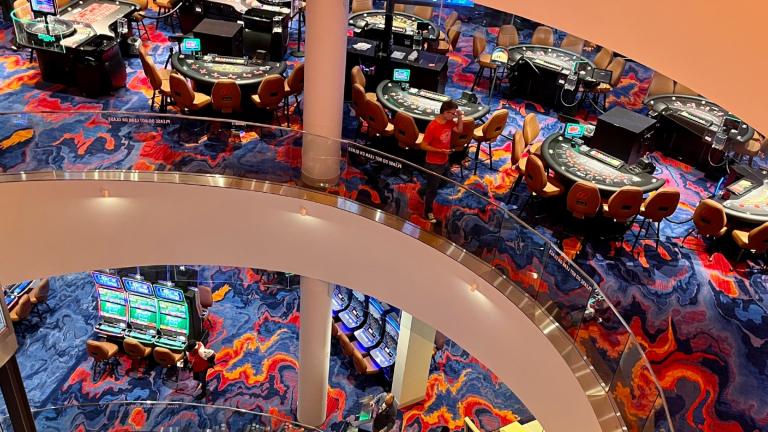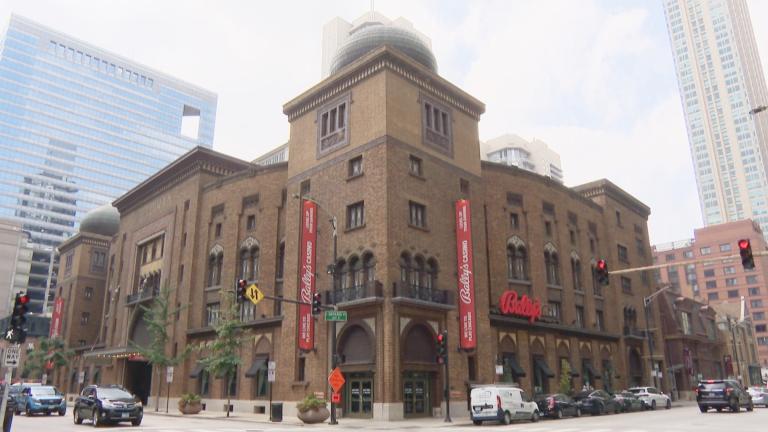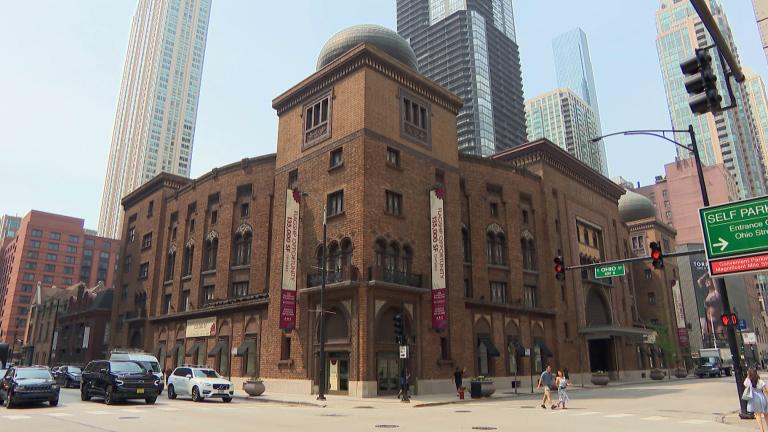Mayor Lori Lightfoot is betting on a casino for the city of Chicago by 2025, with three finalists on the table, but not everyone is on the same page.
Bally’s
Bally’s proposes building its $1.74 billion casino and resort on what is now the Chicago Tribune printing plant and newsroom near Chicago Avenue and Halsted Street.
It would have 3,400 slots and 173 table games as well as a 500-room hotel in the River West neighborhood.
According to Brian Israel, president of the River North Residents Association, “They have never done a project anywhere close to this scope or scale,” Israel said. “It’s going to take years to complete so the price tag is going to go up, which means they are going to take on additional debt or raise additional capital. The financing plan is a little bit questionable so we wonder what if this project fails and if it fails, what will happen to the neighborhood.”
Israel says his organization serves about 27,000 residents in the community and according to a survey they’ve been conducting, about 80% of residents are against Bally’s proposal.
Concerns include increased traffic and the impact it could have on businesses in the area. Israel questioned if there is going to be enough infrastructure to support that kind of density.
“We share the goals of revenue generation and we think that we definitely should have increased tourism and increased commerce,” Israel said. “But casinos tend to be aggressive in their economic impact, in other words, the effect on lower-income people is much worse than higher-income people.”
Hard Rock
Hardrock Casino, proposed for west of Soldier Field, would be a part of the One Central development.
It’s also a $1.74 billion project and has similar amenities that Bally’s has proposed with 500 hotel rooms, a food hall, a pedestrian corridor and more.
The main difference is Hard Rock’s key players in this development are relying on their partnership with Roc Nation and a vision of becoming an “International destination” for tourism.
But, locals have mixed feelings about using casinos to boost Chicago’s economy.
“It will offer more jobs, but that’s one aspect of jobs,” said South Side resident Claudette Bunton. “If they can do something else as opposed to gambling that would be awesome.”
Juanes Jaramillo, a student at Columbia College, said that gambling has only had negative impacts on his home neighborhood in Ecuador by fueling drug and alcohol addiction.
“Where I’m from we don’t have casinos anymore, they prohibited that,” Jaramillo said. “It’s illegal, people do it, but they get caught.”
Investors in the Hard Rock proposal have promised to involve underrepresented communities in the process and seemed open to talking to violence prevention organizations to find ways to help struggling neighborhoods.
There’s also talk about creating a job training center to train employees for the casino, but that’s still not enough for some Chicagoans who say casinos target vulnerable populations, including immigrants.
“Regardless of whichever one of the three sides gets the license, we hope they will continue to be engaged with both the local communities around them and our specific needs,” said Grace Chan McKibben, executive director of the Coalition For A Better Chinese American Community. “We would want them to continue the dialogue, put prevention measures (in place), and have programs and services for people who need them.”
Rivers 78
Rivers 78 Casino would be built near Clark Street and Roosevelt, as part of what’s expected to be Chicago’s 78th neighborhood.
The $1.62 billion proposal from Rush Street Gaming is supposed to have a 300-room hotel tower, an observation tower, and a riverfront venue for live entertainment.
The original plans for this area included building homes and a commercial retail corridor. Residents have concerns with the addition to this plan.
“Now that there’s a casino [involved], it makes it a lot less like a residential community so how does that work?” wonders McKibben. “We also understand UIC has an academic center there that’s going to be on the south end, and the casino is going to be on the north end. How do the two things fit together? We keep having questions about that.”
All three finalists have argued that instead of people leaving the city to play at nearby casinos, that revenue could be going to Chicago, but David Wu, executive director of Pui Tak Center says it would come with a social cost.
“It’s a hard issue to deal with because no one is proud that they’re going to go bankrupt because of their gambling problems,” Wu said. “We’re working on reaching out to more people in order to overcome the stigma. There’s help if you reach out.”
Rush Street Gaming’s main selling point is that they will be partnering with multiple restaurants across the city to give them an opportunity to have a space along the Riverwalk. One of those businesses is Ositos Tap in Little Village.
The owner, Mike Moreno Jr. grew up in the neighborhood and says, if it helps lift underserved communities, he is willing to take a leap of faith.
“I myself have my reservations and hesitations about a casino in the community,” Moreno Jr. said. “I think if they’re going to open it up, I want to make sure that the most important thing is that the revenue stream that’s coming in here is being utilized back towards the community.”
“Chicago Tonight” is expanding its community reporting. We’re hitting the streets to speak with your neighbors, local businesses, agencies and leaders about COVID-19, the economy, racial justice, education and more. See where we’ve been and what we’ve learned by using the map below. Or select a community using the drop-down menu. Points in red represent our series COVID-19 Across Chicago; blue marks our series “Chicago Tonight” in Your Neighborhood.Community Reporting Series

